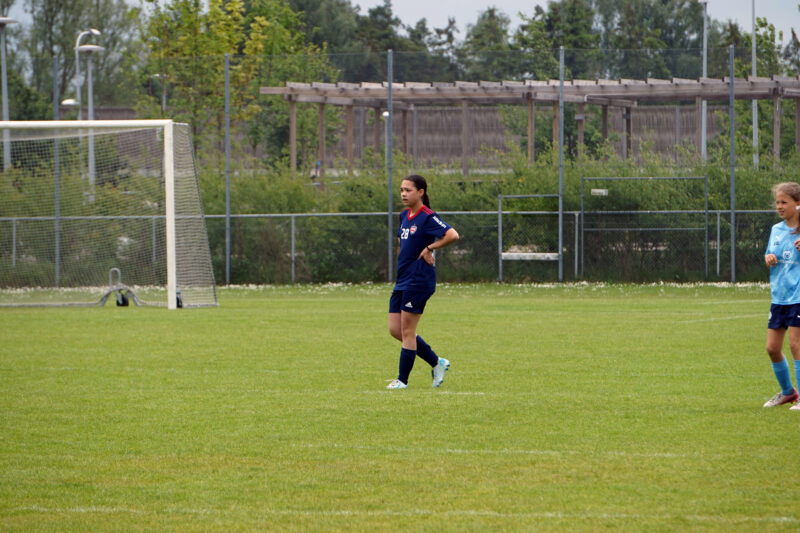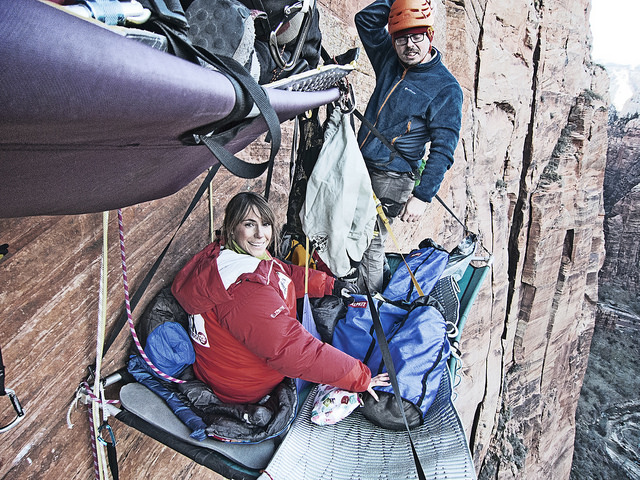Yesterday she stepped up for U-15, two years above her age group. Ninety full minutes at centre-back. She was focused, nervous, and had slept almost nothing the night before. This was a big game for her. It was a big one for me too: I hadn’t slept either. Ten minutes in she was outrun by a taller, faster striker and my watch suddenly beeped:
“Abnormally high pulse discovered.”

Dana reads the game well; with a nudge from her older team-mates she adjusted and wasn’t outrun again.
Normally I’m relaxed—meditation, good books, a slow drift toward Buddhist thinking have helped. All of that disappears when I watch Dana play. I turn into an opinionated, occasionally uncontrolled football parent. Sometimes I’m almost ashamed. Luckily I have my oldest daughter, Eva, beside me on the sideline. She analyses the game and tells me to calm down, even though she admits I’m often right.
Why do I act like this?
Not because of the referee or imagined injustice. Mostly it’s that parental urge: why did the coaches pick this line-up? How is that girl in the team? Ugly, reptilian thoughts. I know football should be joyful for everyone, but many parents feel the same. Western clubs even budget to handle parents who behave like idiots. At an elite outfit like Rosengård expectations run high.

Parents cluster the way the girls cluster. Two “popular” players draw their own followings, and the rest gravitate to one camp or the other. Dana stays out of it—travel has taught her she doesn’t need a tribe.
Our family life revolves around Dana’s football. We drive to training, to matches, we talk about it constantly. Eva quit last year; the same clique sometimes sent her home in tears. The club sorted it out, but she decided football wasn’t for her and admitted she’d only played to please me.
I loved football myself until I was sixteen, when travel took over. It’s a fine preparation for life, but like life it isn’t easy.

Dana lives for it. She trains hard, asks for an extra workout with me once a week. She can’t understand team-mates who don’t focus. She wants to be perfect—sister, daughter, player. One mistake in a match and her world cracks for a moment. We talk about it a lot. I’m relieved the season ends next week—one last training, then a summer break.

And then we leave for Kyrgyzstan.
In two weeks we pack our rucksacks and fly Copenhagen–Bishkek. From there a long drive east. The girls will carry their own loads. We’ll walk ten, maybe fifteen kilometres a day, set up the tent, cook simple food, film when we can.
Out there nobody tells us when to start or stop. No whistle, no coach, no referee. Just the route and the weather.
I take them because the time feels real. The discipline Dana learns on the pitch, the way she reads a play—that matters when she has to judge a river crossing or choose a line up a slope. Eva’s steady attitude helps when it rains, the stove sputters, or the day just feels hard.
I still worry. Heart-rate spike or not, that doesn’t change. But I’d worry more if we never left home.
So: one more training session, summer break, then Kyrgyzstan. That’s the plan.
What kind of father does this?
This one.

#Fatherhood #GirlsFootball #YouthSports #AdventureFamily #KyrgyzstanTrek #FamilyTravel #DocumentaryLife

